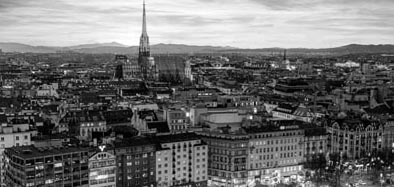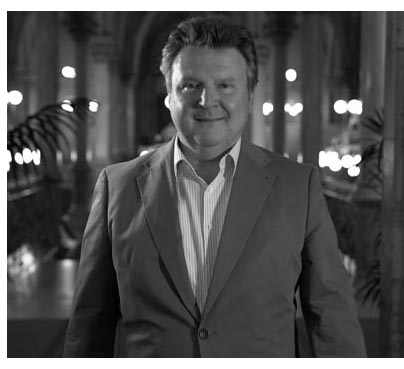2.5 / Alternatives
2.5.1 / Alternatives / Vienna

Vienna, 5th district, Bärengasse. Josephine and Caspar Lugner have lived in a spacious 4-room flat in the middle of the city for 36 years. Their tenancy cannot be terminated as long as they pay the rent. The rent is €557,76 for 96m². The rent increases according to the inflation rate. What else can you say? It's a natural state of affairs, just like nice and nasty neighbours, says Caspar.
For Mayor Michael Ludwig, housing is a human right. After all, 62% of Viennese citizens benefit from it. They live either in so-called municipal or in subsidized housing. Even in  the case of privately financed flats, the city can intervene to regulate prices because of its dominant position in the market. Here the rent rarely exceeds €10 per m². However, since the financial crisis, Vienna is also aware that a great deal of private capital is looking for investment. That’s why every real estate company that buys land for conversion into housing must now build flats for a maximum rent of €5 per m² on two-thirds of the area. Only on the remaining third are they allowed to calculate freely. In addition, the city only gives building land to private investors who sell their own land in Vienna to the city. In this way, land is deliberately stockpiled. No municipal housing stock has ever been sold. No private investor could compete with Vienna Housing Fund, which has more than three million m² of land at its disposal. Martin Prunbauer, president of the Austrian Land and House Owners' Association, sees this as an expropriation of private property, which would lead to a decline in urgently needed new construction. Mayor Ludwig smiles at this. Private investment is not declining at all, he says. Despite strict regulation, there are still more purchase inquiries from private capital than the city can offer.
the case of privately financed flats, the city can intervene to regulate prices because of its dominant position in the market. Here the rent rarely exceeds €10 per m². However, since the financial crisis, Vienna is also aware that a great deal of private capital is looking for investment. That’s why every real estate company that buys land for conversion into housing must now build flats for a maximum rent of €5 per m² on two-thirds of the area. Only on the remaining third are they allowed to calculate freely. In addition, the city only gives building land to private investors who sell their own land in Vienna to the city. In this way, land is deliberately stockpiled. No municipal housing stock has ever been sold. No private investor could compete with Vienna Housing Fund, which has more than three million m² of land at its disposal. Martin Prunbauer, president of the Austrian Land and House Owners' Association, sees this as an expropriation of private property, which would lead to a decline in urgently needed new construction. Mayor Ludwig smiles at this. Private investment is not declining at all, he says. Despite strict regulation, there are still more purchase inquiries from private capital than the city can offer.
In Vienna, it is striking that there are still many shops which elsewhere are falling victim to rising commercial rents. A shop with thousands of buttons, zips and everything you need for sewing. A shop selling only wafers, junk shops, a shop with 70 different barrels of vinegar and an adjoining chicken farm. Most of them can hang on because the town is the landlord. Waltraud Karner-Kremser, chairperson of the housing committee, emphasizes that the small shops, the hairdresser, the bookshop and the café, which are within walking distance, are important for maintaining the residential value. This is also a maxim in the planning of new city districts.





